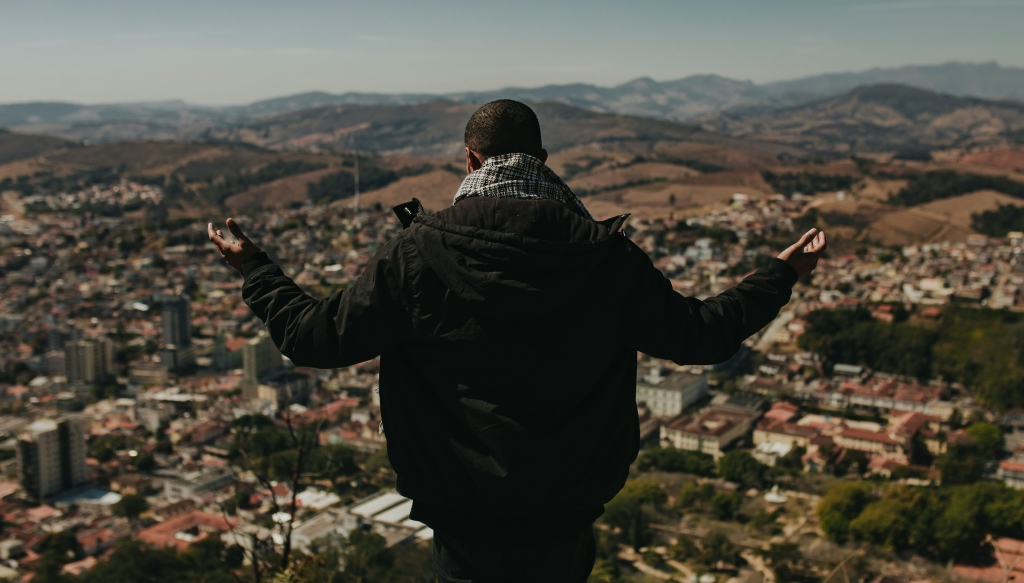The Third Sunday of Easter – Cycle B
Acts 3:13-15, 17-19; 1 John 2:1-5a; Luke 24:35-48
We’ve all heard that as people age, they sometimes go through a “crisis,” like a mid-life or identity crisis. I recently heard of a “later-life” crisis, which I’m personally hoping to avoid. But my guess is that few people go through what I call a “being Catholic” crisis, although I did, and my hope is that it becomes more common. Let me explain why.
As a young man, I went to Mass every Sunday, sang in the choir, and made friends at the parish. I met my future wife there, got married there, had the kids baptized, made sure they got all their sacraments, and that we all went to church every Sunday. I assumed I was being a good Catholic, because that’s what good Catholics do, isn’t it?
But over time, I began to feel that Catholic crisis coming on. The kids were asking me basic faith questions I couldn’t answer; some of them very important. More deeply, as I looked inside, I saw a hypocrite; a man who was doing and saying all the right things on Sunday morning, but the rest of the time being the same worldly guy he’d always been. I also looked around the neighborhood, at some people I knew from church, and saw them living the faith openly; it didn’t matter what day it was, who they were with or where they were. One woman in particular was so genuine, so warm, so Christ-like, that she made me hunger in a way I never had before. I remember looking at her and thinking, “Sister, I want whatever it is you’ve got.”
That hunger prompted me to begin re-learning the faith, starting with why we do what we do. Slowly but surely, as more and more sank in, it became clear to me that for my entire life up to that moment, I had no idea what it meant to be a Catholic. I thought Catholicism was mostly about what we do, but no; it’s much more about who we are.
That’s not to say that what we do is unimportant. It is! The grace of the sacraments is vital; life-changing, even. But it’s not magic; there are rules. One, for example, is that we only get what we’re ready to receive. If all we do is show up and go through the motions, why should we expect a change? But, if we understand the power of grace, how and why it works, and open ourselves up to it, then it begins to transform us into who Christ calls us to be – who he called the Apostles to be – his witnesses to the world.
When it comes down to it, we’re not so different from them. Consider all the time they spent with our Lord during his ministry: Everything they heard him say, the wonders they saw him do. They weren’t going through the motions like I was, but, like me, they had no idea what it really meant to follow Christ. When his passion began and the pressure was on, how did they witness their faith? Think of Peter, who told Jesus he was willing to go to prison and die with him; imagine that moment when, after his third denial, the cock crowed and, from across the high priest’s courtyard, Jesus turned and looked at him. This was Peter’s moment to realize at the deepest level that following Jesus was not about what he did, but who he was, and, at that moment, he must have felt like he too was nothing but a hypocrite. No wonder he wept.
Of course, that isn’t the end of the story. In those tears came the repentance that Peter himself preached in the first reading, and that his fellow Apostle John spoke of in the second. Our transformation, becoming more of who we really are, happens every time we confess our sins and receive the absolution that our Advocate, Jesus Christ, died to give the world. Many, if not all of us, know very well how it feels to hear those words, “I absolve you from your sins…” No wonder we sometimes weep.
There, in the sacraments, is where we meet Christ and find our true identity. That’s where the two disciples met him just before today’s Gospel passage, and what happened to them? Their hearts burned so strongly that they couldn’t wait; they had to go back to Jerusalem at night to tell the disciples. That’s the first thing sacramental grace does; it empowers us to make our way through the darkness of the world, or of our own inner crises, and find the peace that only the light of Christ can give. But the second thing is no less important. Through grace, Christ shows us who we really are: Beloved disciples given gifts that we in turn must share with the world in every way we can. This is what it means to be Catholic; to use every grace given to us, sacramental and otherwise, to become who we are so genuinely and so completely, that people will look at us, hunger for Christ, and say, “I want whatever it is you’ve got.”
—
